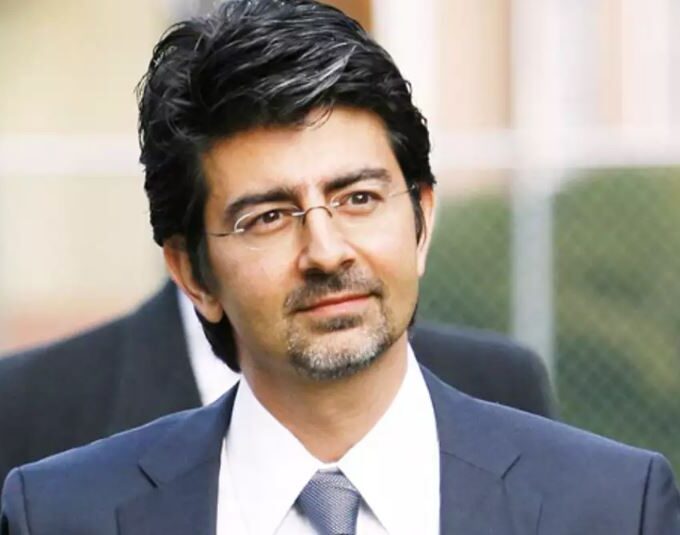- Home
- Billionaires
- Investing Newsletters
- 193CC 1000
- Article Layout 2
- Article Layout 3
- Article Layout 4
- Article Layout 5
- Article Layout 6
- Article Layout 7
- Article Layout 8
- Article Layout 9
- Article Layout 10
- Article Layout 11
- Article Layout 12
- Article Layout 13
- Article Layout 14
- Article Sidebar
- Post Format
- pages
- Archive Layouts
- Post Gallery
- Post Video Background
- Post Review
- Sponsored Post
- Leadership
- Business
- Money
- Small Business
- Innovation
- Shop
Recent Posts
Dustin Moskovitz: The Quiet Billionaire Behind Facebook and Asana

Dustin Moskovitz may not be the most famous name associated with Facebook, but his influence and success in the tech world make him one of the most important figures of his generation. A quiet yet deeply impactful entrepreneur and philanthropist, Moskovitz has played a central role in the evolution of modern technology and business through his contributions to Facebook and later as the co-founder of Asana, a popular work management platform. His story is one of intelligence, idealism, and a commitment to using wealth for good.
Born on May 22, 1984, in Gainesville, Florida, Dustin Aaron Moskovitz grew up in Ocala, Florida, in a Jewish family. He demonstrated strong academic potential early on and went on to attend Vanguard High School, graduating from the IB (International Baccalaureate) program. Later, he enrolled at Harvard University, where he studied economics. However, like several other tech moguls of his era, his time at Harvard would be cut short by a revolutionary idea that would change the world.
In 2004, while at Harvard, Moskovitz became one of the co-founders of Facebook alongside Mark Zuckerberg, Eduardo Saverin, Andrew McCollum, and Chris Hughes. Initially launched as a social networking site for Harvard students, Facebook rapidly expanded to other universities and ultimately to the public. Moskovitz played a crucial role in the company’s early technical development. As Facebook’s first Chief Technology Officer and later Vice President of Engineering, he oversaw the site’s architecture and helped scale its infrastructure to support a growing user base.
Moskovitz was known for his sharp intellect and technical prowess. Unlike Zuckerberg, who became the public face of Facebook, Moskovitz preferred to work behind the scenes, focusing on engineering and operations. His decision to leave Harvard with Zuckerberg to relocate Facebook to Palo Alto, California, was a pivotal moment in both their lives and marked the beginning of a new era for the internet.
After several years at Facebook, Moskovitz left the company in 2008 to co-found Asana with Justin Rosenstein, another former Facebook engineer. Asana was born from their desire to build a platform that helped teams manage their work more efficiently. Their experience at Facebook had shown them how difficult it was to coordinate tasks within growing organizations, and Asana aimed to solve that problem. The result was a powerful tool that allows teams to plan, organize, and track work in a collaborative environment. Today, Asana serves millions of users and is widely regarded as one of the leading project management tools in the industry.
Despite his enormous wealth—he became one of the world’s youngest billionaires due to his stake in Facebook—Moskovitz has remained relatively low-profile. He is known for his modest lifestyle and values-driven approach to wealth. A significant aspect of his identity is his commitment to philanthropy. In 2010, Moskovitz and his wife, Cari Tuna, co-founded the philanthropic organization Good Ventures. The couple also partnered with the charity evaluation organization GiveWell to create the Open Philanthropy Project, which aims to direct charitable funding to the most effective and evidence-based causes.
Moskovitz and Tuna have become leading figures in the effective altruism movement, a philosophy and social movement that uses reason and evidence to determine the most effective ways to improve the world. Through their philanthropic work, they have donated hundreds of millions of dollars to causes including global health, pandemic preparedness, criminal justice reform, animal welfare, and climate change mitigation. Their transparency and commitment to data-driven giving have influenced a new generation of philanthropists.
Unlike many Silicon Valley entrepreneurs who chase fame and media attention, Moskovitz has maintained a reserved and thoughtful public persona. He rarely gives interviews and avoids the spotlight, preferring instead to let his work and actions speak for themselves. Those who know him describe him as humble, introspective, and deeply committed to making the world a better place. His approach to leadership is collaborative and focused on long-term impact rather than short-term gain.
Moskovitz’s story also includes an example of how idealism and capitalism can coexist. He has proven that it is possible to build massively successful businesses while maintaining a moral compass and a desire to give back. His efforts to improve workplace productivity through Asana and to solve global problems through his philanthropic endeavors show a holistic vision of success—not just financial gain, but meaningful contribution to humanity.
In 2020, Asana went public via a direct listing on the New York Stock Exchange, further cementing Moskovitz’s legacy as a visionary entrepreneur. The success of Asana also demonstrated that his contributions to Facebook were not a one-time fluke, but part of a broader pattern of innovation and thoughtful business leadership.
Dustin Moskovitz’s life is a reminder that the people who shape the digital world are not always the loudest or most visible. Sometimes, it is those who work quietly, guided by purpose and principle, who leave the most enduring marks. As a founder, philanthropist, and thinker, Moskovitz continues to influence both the tech industry and the wider world in profound ways. His life is a testament to what can be achieved when intelligence, humility, and ethical responsibility come together in pursuit of something greater than personal success.
- 21st-century philanthropist
- Asana CEO
- Asana IPO
- Asana story
- billionaire philanthropist
- California tech scene
- data-driven philanthropy
- Dustin Moskovitz
- early Facebook
- effective altruism
- effective giving
- engineering leader
- Ethical Business
- ethical tech
- Facebook co-founder
- Facebook engineering
- Facebook history
- Facebook legacy
- Facebook origins
- GiveWell partner
- Good Ventures
- Harvard dropout
- Harvard University
- humble billionaire
- IB graduate
- Jewish entrepreneur
- Justin Rosenstein
- low profile tech leaders
- modern philanthropy
- modern software tools
- Open Philanthropy
- Palo Alto
- productivity tools
- project management software
- purposeful business
- quiet billionaire
- quiet leadership
- responsible wealth
- Silicon Valley
- social media origins
- software entrepreneur
- startup founder
- startup success story
- tech billionaire
- tech entrepreneur
- tech industry leaders
- tech world influencers
- work management tools
- workplace productivity
- young billionaire
Recent Posts
Categories
- 193 Countries Consortium Partner1
- 193cc Digital Assets2
- 5G1
- Aerospace & Defense48
- AI37
- Arts3
- Banking & Insurance11
- Big Data3
- Billionaires1,487
- Boats & Planes1
- Business332
- Careers13
- Cars & Bikes79
- CEO Network1
- CFO Network17
- CHRO Network1
- CIO Network1
- Cloud10
- CMO Network18
- Commercial Real Estate7
- Consultant1
- Consumer Tech194
- CxO1
- Cybersecurity73
- Dining1
- Diversity, Equity & Inclusion4
- Education7
- Energy8
- Enterprise Tech29
- Events11
- Fintech1
- Food & Drink2
- Franchises1
- Freelance1
- Future Of Work2
- Games149
- GIG1
- Healthcare79
- Hollywood & Entertainment203
- Houses1
- India’s 1000 Richest1
- Innovation46
- Investing2
- Investing Newsletters4
- Leadership65
- Lifestyle11
- Manufacturing1
- Markets20
- Media327
- Mobile phone1
- Money13
- Personal Finance2
- Policy569
- Real Estate1
- Research6
- Retail1
- Retirement1
- Small Business1
- SportsMoney42
- Style & Beauty1
- Success Income1
- Taxes2
- Travel10
- Uncategorized14
- Vices1
- Watches & Jewelry2
- world's billionaires1,456
- Worlds Richest Self-Made Women2
Related Articles
Carrie Perrodo & Family: A Legacy of Wealth, Privacy, and Influence
Carrie Perrodo, the reclusive French billionaire and matriarch of one of the...
By 193cc World's BillionairesJune 3, 2025The Life and Legacy of Pei Zhenhua
Pei Zhenhua was a prominent Chinese military and political leader whose contributions...
By 193cc World's BillionairesJune 3, 2025Pierre Omidyar: The Visionary Behind eBay and a Champion for Global Change
Pierre Omidyar is a name that resonates deeply within the worlds of...
By 193cc World's BillionairesJune 3, 2025Richard Liu: The Visionary Behind JD.com’s Rise to E-Commerce Dominance
Richard Liu, also known as Liu Qiangdong, is one of the most...
By 193cc World's BillionairesJune 3, 2025














Leave a comment